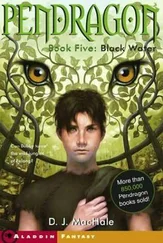After a while, Wayan appeared at the far end, beyond the shops, carrying two banana-leaf-wrapped food parcels. He rose.
It took longer than he had anticipated to reach the village up in the hills where Komang lived. The rain had been heavy enough to turn the tracks soggy and the route became muddy and impassable. When they dismounted to turn the bike, fat droplets of water fell from the trees above.
It was late afternoon by the time they reached their destination and he was already thinking they might end up stuck there for the night, not ideal but safer than travelling after dark. Following Abang’s instructions, he told Wayan to park the moped just off the village square. They stood by the motorbike for a few minutes, drinking from a water bottle, while Harper orientated himself. Komang’s farm was close to the village up a steep rise that led north.
As he walked up the rise, three boys began following him, calling out, ‘Hallo! Hallo!’ Soon, they were joined by four or five others, like yappy dogs, grinning and jumping, keen to announce his arrival. They fell away as he approached the house and ran shrieking back down the rise.
The house was a grand construction for a rice farmer, long and low. Three dogs ran out to greet him, snarling half-heartedly. A cockerel in the front yard lifted its head, stretched its neck upwards and flapped its wings. A girl of about twelve rounded the corner of the house, saw him, stopped dead, then turned and ran back the way she had come.
Harper waited in front of the house. He wondered if it would be impolite to light a cigarette.
A man in a shirt and sarong came round the corner of the house. He stopped a few feet away, so that they could appraise each other: from his bearing, Harper had no doubt that this was the man of the household, Komang. He was a thin man, in his thirties Harper guessed, with the dense build of someone who had worked the land since childhood: at first glance rather small but then, on closer examination, with taut calf muscles and shoulders hard as steel: not a weakling, certainly. If you needed to lift a tree trunk, you would want him to help.
Komang gave him a slow look. There was no aggression in it, no challenge, but instead, a kind of knowledge, devoid of apprehension it seemed, as if Komang had been expecting him. Harper watched Komang looking at him, taking in his open-necked shirt and his slacks, acknowledging that this stranger had come for a reason.
Harper called out, ‘How close to harvest time?’
Komang replied, ‘As usual, brother.’ It was called an identifier , in the trade.
‘Abang says hello,’ Harper added.
Komang bowed his head. ‘Welcome,’ he said, and came forward.
Komang’s wife appeared on the veranda. She was thin too, older-looking than her husband, more wary. Her face was open but strained. She and her husband exchanged a few words. He guessed she was being given instructions about hospitality.
Komang lifted a hand towards the fields and said, ‘While the light is good, shall we walk?’
Harper nodded. The light had that particular quality that came in late afternoon after a heavy rain, a dewiness still in the air, lit by gold.
They walked and, first of all, Harper asked questions. What was the latest on PKI activity in the area? How was land reform proceeding? What did the locals think? How much news of what was happening on Java had reached them here? The answers were as he had expected. On Java, both the Muslim and Christian generals portrayed the Communists as atheist barbarians; here on Hindu Bali, the anti-PKI groups said the Communists were not only against God but would destroy all the local customs, the delicate balances that had been built up over centuries, the ceremonies and worship so integral to Balinese village life. People were worried, Komang said, the omens were bad. Gunung Agung had shown anger, lava had flowed, although the gods had spared the Mother Temple.
And a teacher earns enough money in a month to buy two weeks’ supply of rice, Harper thought. No wonder people were angry; no wonder they wanted someone to blame.
They had reached the end of the field: the rice plants were a flowing expanse, rippling in the breeze like the surface of a green sea. On the far side of the field was a dense wall of palm trees. If you ran across the field, it would take you a good ten minutes to reach the row of trees, he reckoned: the field was not a solid thing. The plants stood in water. If you were light-footed, barefoot, a child perhaps, you might be quicker, but if you were normal weight and wearing shoes, your feet would stick. The mud would cling to your feet. Your only chance would be if the people pursuing you were slowed by it too. He wondered how long it was until dark.
They were standing next to each other, facing out across the fields. ‘Komang,’ Harper said, ‘Abang has told me, you must know, your brother’s political activities, you must know what they could mean for you, your family. Everything that has been happening on Java could happen here. .’ He paused, to let Komang fill in the gaps.
They stood looking out over the field, the low sun still lighting it with green and gold. At moments like this, you could believe that it was worth dying on this spot, Harper thought, because heaven was here, in this soil, in the green rice plants, the light. How would a man like Komang leave all this, give up a lifetime of work?
They walked back up to the compound. Komang’s wife emerged as they approached, holding a tray with two glasses on it. She stared at her husband.
While they sat on the back porch and drank tea, children ran in and out of the house. There seemed to be at least eight of them. Komang’s wife brought out some chopped fruit, banana and salak in a china bowl with a curled blue pattern, the glaze a little cracked, kept only for guests, probably. She smiled shyly, bowed to Harper and her husband, then retreated into the kitchen to continue the preparations for the evening meal, shooing the children in front of her. A few minutes later, an elderly woman poked her head out of the back door, looked at them and then immediately disappeared. Harper wondered how many people lived in the compound in total. As well as Komang’s family there might be a younger sibling or two around, his family, elderly relatives — some of the children were probably nieces and nephews. Too large a group to flee in a hurry; too many who couldn’t run all that fast.
Komang leaned forward in his seat, keeping his voice low. ‘I’ve been fortunate, Mr Harper, blessed, you might say. Tell me, how does a man like me stay fortunate?’
The madness would come to this village. It was only a matter of time. He knew it, and Komang knew it, but did he know how bad it would be?
He looked at Komang, then said, quietly, ‘What will they say in the village, about my visit?’
Komang said, ‘I am a farmer but, you see. .’ He glanced over Harper’s shoulder to the house. ‘It is a bigger house than most farmers’. There is talk, yes, of course.’
Harper could imagine the scenario all too clearly: the envy and resentment in the village, the whispers. Komang was probably using part of what he earned by giving information to the Institute to pay protection money to a local militia of some sort, but if that arrangement collapsed there would be nobody to protect him.
‘My brother is not a bad man,’ Komang said. ‘He wants to give people who have nothing their own piece of land, so that the hours they work feed their families and are not given to a landowner who does nothing for them. The PKI are going too far, I don’t agree with Communism, but the people themselves, they are not all bad people.’
‘I know that. Not everybody else sees things that way.’
Komang kept his face very still. Harper admired the man’s composure, considering that the rapid calculations he must be making would have such consequences for his family.
Читать дальше












